Keywords: Economic Growth
There are more than 200 results, only the first 200 are displayed here.
-
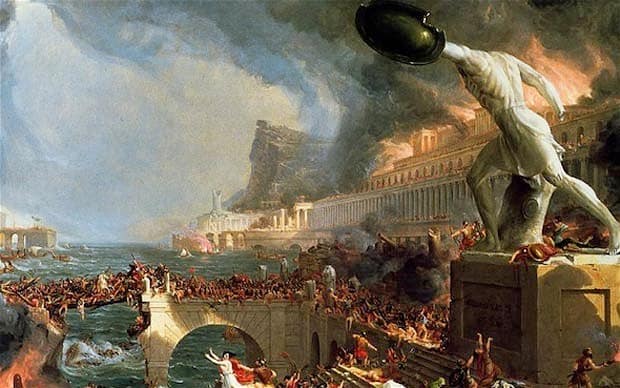
AUSTRALIA
- Andrew Hamilton
- 19 July 2017
21 Comments
Paul Kelly in the Australian makes the case that the decline in Christian faith made evident in the recent Census is in large measure responsible for the widespread loss of trust in the political system throughout the West. There are inevitable limitations to such broad brush arguments. Lack of trust in politics and institutions is not new. From the Roman Empire to contemporary China authorities who do not ensure an adequate supply of bread to their citizens can expect to meet distrust, unrest and replacement.
READ MORE 
-
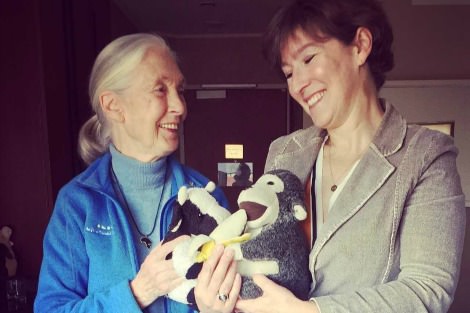
INTERNATIONAL
- Catherine Marshall
- 12 July 2017
7 Comments
Revered for her groundbreaking study of chimpanzees in Tanzania's Gombe Stream, Goodall has spent the past three decades travelling the world in an effort to alert its human inhabitants to the alarming news: we are destroying the planet. The message seems to have been lost on those in a position to halt the change, for research scientists have just reported that a mass extinction is currently underway, a biological annihilation in which billions of regional or local populations have already been lost.
READ MORE 
-

ENVIRONMENT
- Andrew Hamilton
- 07 June 2017
5 Comments
To consider cricket as work would strike many people as odd. They would see it as a hobby, a recreation, a game or a calling. Professional sportspersons receive little attention in Catholic social thought, which is a pity because a Catholic understanding of work provides a helpful perspective. Its crucial insight is that work is a human activity, and that each human being is precious, unique and needs to be respected. Neither people nor work can be seen as means to an economic end, or as expendable.
READ MORE 
-
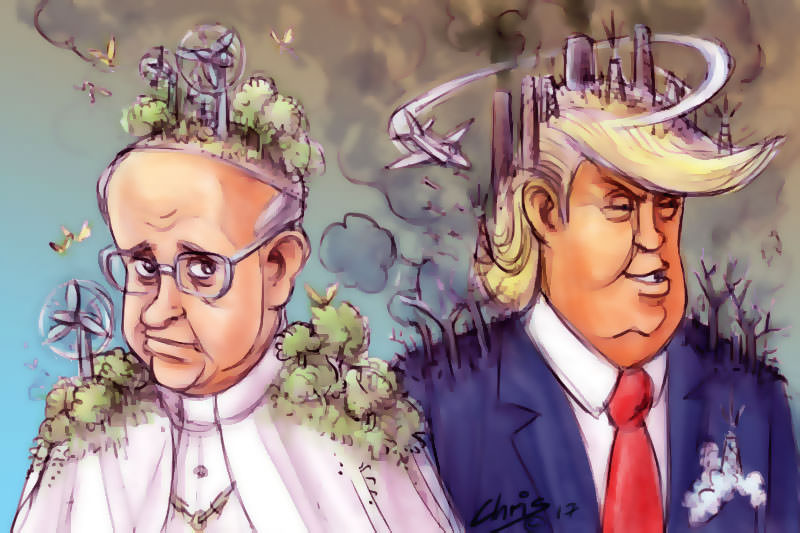
ENVIRONMENT
- Andrew Hamilton
- 02 June 2017
10 Comments
The strident public debate about global warming and the threat it poses has died down. Few knowledgeable people deny its reality. At the same time, powerful interest groups and politicians appeal to the need for economic growth in order to weaken any international commitment. At such a time it is worth returning to Laudato Si, Pope Francis' passionate exhortation to care for the environment. Its most significant insight is that the environment is not something outside ourselves. We are part of it.
READ MORE 
-

AUSTRALIA
Next year marks four decades since promulgation of the seminal Declaration of Alma Ata, which declared health to be a fundamental human right and laid the foundations for what are now widely championed as the social determinants of health. Without action on the social determinants, health policy can be a little like that joke about the cyclopean orthopod who, when confronted with a patient suffering fatal internal bleeding, is interested only in fixing their broken leg. So it is with last week's Budget.
READ MORE 
-

RELIGION
- Frank Brennan
- 08 May 2017
1 Comment
Our Church is presently a strained, outdated social institution with an exclusively male hierarchy and clergy. But it is also the privileged locus for us to be called to the banquet of the Lord sharing theology and sacrament which have sustained the hearts and minds of similar pilgrims for two millennia. Thank God for Pope Francis who is showing us the way, helping us to find meaning in our changing and chaotic world, putting a fresh spring in the step of all those Catholics holding in tension the prophetic and the practical, the theological and the humanist, the tradition and the contemporary reality.
READ MORE
-
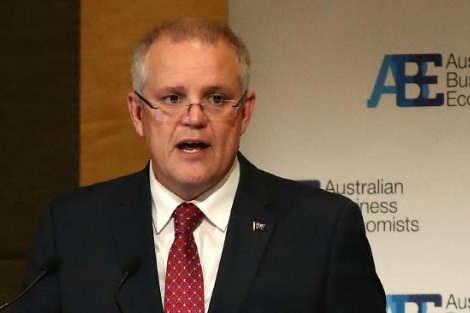
AUSTRALIA
- Frank Brennan
- 07 May 2017
7 Comments
Part of the cost of the double dissolution election last July has been the creation of a Senate with the largest, most diverse group of crossbenchers ever. This will make the passage of any new contested Budget measures difficult, particularly given the Prime Minister’s vulnerability on his right flank, and the Labor Party's propensity to mimic the Opposition tactics adopted previously by Tony Abbott. The government needs to create a clear narrative as to how it will achieve equitable and sustainable growth through this Budget.
READ MORE 
-
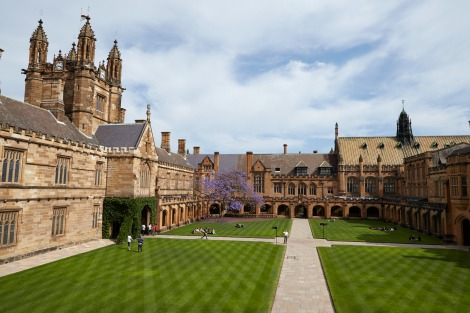
INTERNATIONAL
- Binoy Kampmark
- 03 May 2017
14 Comments
For various reasons, 'free' education in Australia has been qualified by HECS, which actually serves to wedge the liquid incentive of government and educational institutions on the one hand with the need for students to obtain affordable education on the other. Even that balance is now under threat, with a pre-budget announcement suggesting cuts to university funding and increasing costs to student degrees are in the offing. Universities are far from blameless in the present distorted funding model.
READ MORE 
-
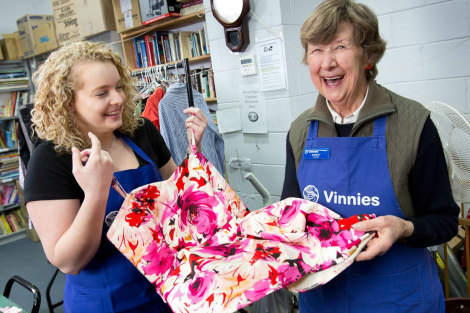
AUSTRALIA
- Fatima Measham
- 27 April 2017
4 Comments
A significant portion of the work that goes on in our economy is voluntary. It features in many contexts, such as social welfare, mentoring, animal welfare, landcare, local sport, and arts and literary activities. It can be hard to make a case for volunteering at a time when labour exploitation is rife. Students, migrants and Indigenous people, who need to establish work experience, are particularly vulnerable when it comes to unpaid work. This does not mean that volunteer work can never be meaningful.
READ MORE 
-
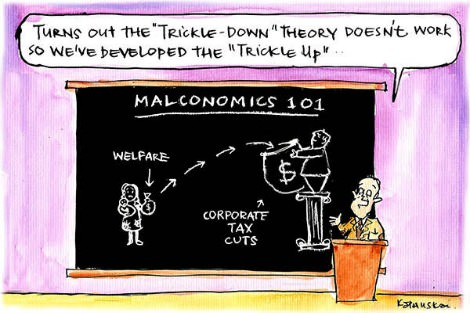
AUSTRALIA
- Frank Brennan
- 10 April 2017
16 Comments
In an age of 'budget repair', social policy risks becoming just a sidebar to economic policy which is a contest of ideas about how best to grow the size of the pie thereby providing a slice for 'the deserving poor' without having to redistribute too much of the pie, while 'the undeserving poor' drop off the edge as they would have anyway. For those of us schooled in Catholic social teaching, the so-called 'undeserving poor' are the litmus test of our commitment to the human dignity of all persons.
READ MORE 
-
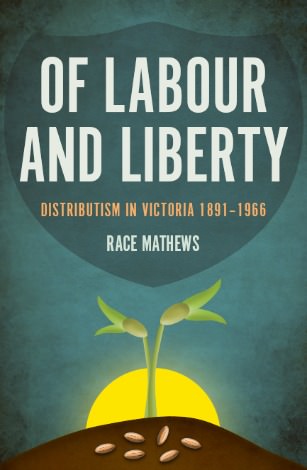
RELIGION
- Andrew Hamilton
- 05 April 2017
6 Comments
It can be disconcerting to hear our family history told by a sympathetic outsider. I found Race Matthews' new book that treats Catholic engagement in public social issues fascinating in that respect. Matthews' perspective is that of a member of the Labor Party who admires Catholic Social Teaching, especially its commendation of the communal ownership of business enterprises. He sees the possibilities this presents for the reform of Australian society, particularly if adopted by the Labor Party.
READ MORE 
-

ECONOMICS
- David James
- 04 April 2017
13 Comments
It is increasingly evident how pernicious the privatisation myth is. Two recent examples have underlined it: the failings in Australia's privatised energy grid and the usurious pricing in airport car parks. Both demonstrated that it is folly to expect a public benefit to inevitably emerge from private profit seeking. The purpose of government funded public infrastructure is not to make profits but to lower the cost of doing business, sometimes called the socialisation of the means of production.
READ MORE 